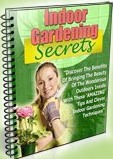Author Archive
 57-Container Gardening Drainage
57-Container Gardening Drainage
Container gardening is a great method to use for saving space, limiting a lot of maintenance, and still reaping the benefits of a garden. Whether it is a vegetable container or one with a stunning arrangement of flowers, container gardening is a fun and rewarding hobby. One of the biggest mistakes new container gardeners make is not providing adequate drainage for their plants. Container gardening drainage is a vital, important aspect of successful gardening. Without it, vegetable plants won’t produce as much and flowering plants may not survive at all.
It is true that almost anything can be used as a container for planting. The standard plastic pots usually can be bought with drainage holes already added. But for a more unique look, container gardeners have gotten creative and used items like old boots, hollow logs, and galvanized buckets and tubs as planters. These items and a host of others work perfectly well as long as they are equipped with drainage holes. Many experts recommend putting drainage holes in the bottom of the pot or container as well on the sides. By all means, have fun with your choice of container, after all it is supposed to be fun, but supply proper drainage for your plants. Container gardening drainage is one of the most important factors in successful gardening.
The physical placement of the pot is vital to proper container gardening drainage as well. In order for the container to drain well it is a good idea to place the whole arrangement on blocks or bricks to give the water a place to drain. If the planter container is left on the ground or flat surface the water pools at the bottom and root rot is more likely.
The tools you will need to make container gardening drainage holes depends on what the container actually is. If it is made of metal the best option is to use a drill to make the holes. In the case of a thin metal, like aluminum, it may be faster and simpler to make the holes using a punch of some kind. Drills also work well with wood containers and, if used carefully, ceramic pots. Your container choice was creative; it only stands to reason that the method you use to make drainage holes may have to be as well.
It can’t be stated enough that the one important key to container gardening is to provide sufficient drainage for your plants. Root rot and over watering is a sure way to ruin even the most well thought out plant display. Adequate container gardening drainage almost guarantees the garden of your dreams every time.
 54-Container Gardening Tomato
54-Container Gardening Tomato
Tomatoes are one of the most popular vegetables, or fruits to be precise. In ancient times tomatoes were known as the “love fruit”. Today we use tomatoes in a large variety of different dishes and its culinary appeal spans almost every cuisine on the planet. There are over 4000 varieties of tomatoes ranging from the cherry and grape versions through to the huge beefsteak kind. High prices in the grocery store have led a lot of people into the habit of growing their own produce. Those living in apartments or condos aren’t left out either. One of the most popular ways to grow them is container gardening tomato style.
The first thing a new gardener needs to decide is what type of container they want to use for their tomato plants. It needs to be a bucket ranging from 3-5 gallons and have adequate drainage. Any type of container in that size requirement will work as long as it has holes in the bottom. Container gardening tomato plants is sure to be a success in the event that water can properly run off the container. Some people have chosen wooden buckets or old watering cans as homes for their container tomatoes.
The next consideration is the kind of soil to be used. Most experts recommend using an artificial soil, like potting soil. This way you avoid transplanting any disease or lack of nutrients from getting to your tomato crop. Using artificial soil also eliminates any soil compaction that often happens in the middle of the growing season. Container gardening tomato plants will often die or produce less if the soil becomes compact. The roots simply can’t grow if they have nowhere to spread.
Two other helpful hints include the use of fertilizer and the practice of staking. Tomato plants are notorious for being greedy when it comes to food. They like it
